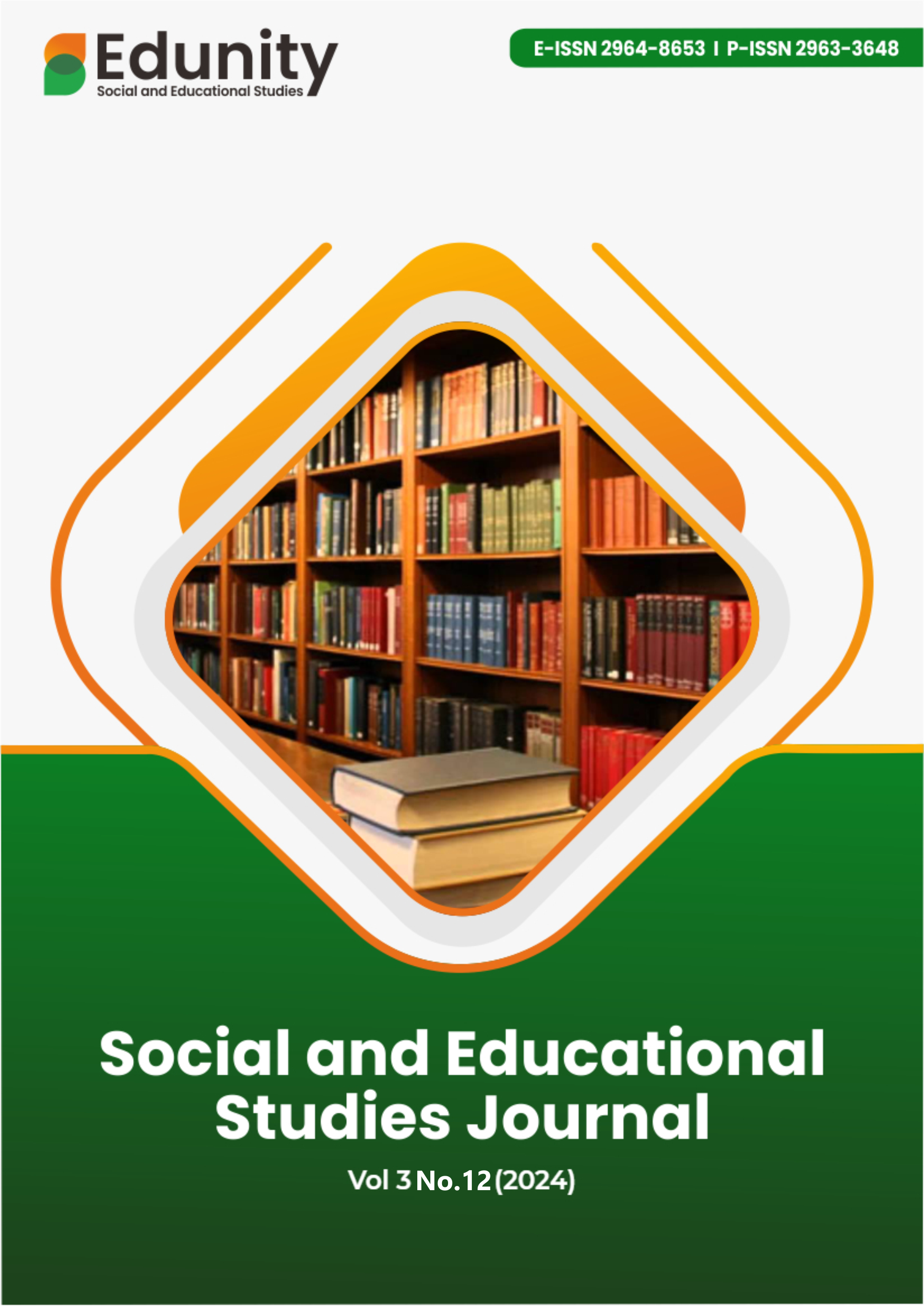The Role of Loneliness on Subjective Well-Being in Adolescents
DOI:
https://doi.org/10.57096/edunity.v3i12.352Keywords:
loneliness, subjective well-being, adolescentsAbstract
Loneliness is an experience that can have far-reaching effects on individuals, especially adolescents, who are in an important developmental phase. Subjective well-being, which includes positive emotions, life satisfaction, and emotional experiences, is an important indicator in assessing adolescents' mental health. This study aims to explore the role of loneliness in influencing subjective well-being in adolescents. This study used a quantitative approach with a survey design, involving 300 adolescent respondents aged 13-18 years. Data were collected through an online questionnaire consisting of the UCLA Loneliness Scale and Diener's Subjective Well-Being Scale. The results of the analysis show that loneliness has a significant negative influence on subjective well-being, with a coefficient of determination (R²) value of 0.314. This shows that 31.4% of the variation in subjective well-being can be explained by the level of loneliness. This study indicates that increased levels of loneliness are associated with decreased subjective well-being in adolescents. The findings provide important insights for the development of interventions aimed at improving adolescents' psychological well-being and reducing feelings of loneliness.

Downloads
Published
Issue
Section
License
Copyright (c) 2024 Angelina Angelina, Andiny Shausan, Erik Wijaya

This work is licensed under a Creative Commons Attribution-ShareAlike 4.0 International License.
Authors who publish with this journal agree to the following terms:
- Authors retain copyright and grant the journal right of first publication with the work simultaneously licensed under aCreative Commons Attribution-ShareAlike 4.0 International (CC-BY-SA). that allows others to share the work with an acknowledgement of the work's authorship and initial publication in this journal.
- Authors are able to enter into separate, additional contractual arrangements for the non-exclusive distribution of the journal's published version of the work (e.g., post it to an institutional repository or publish it in a book), with an acknowledgement of its initial publication in this journal.
- Authors are permitted and encouraged to post their work online (e.g., in institutional repositories or on their website) prior to and during the submission process, as it can lead to productive exchanges, as well as earlier and greater citation of published work.






